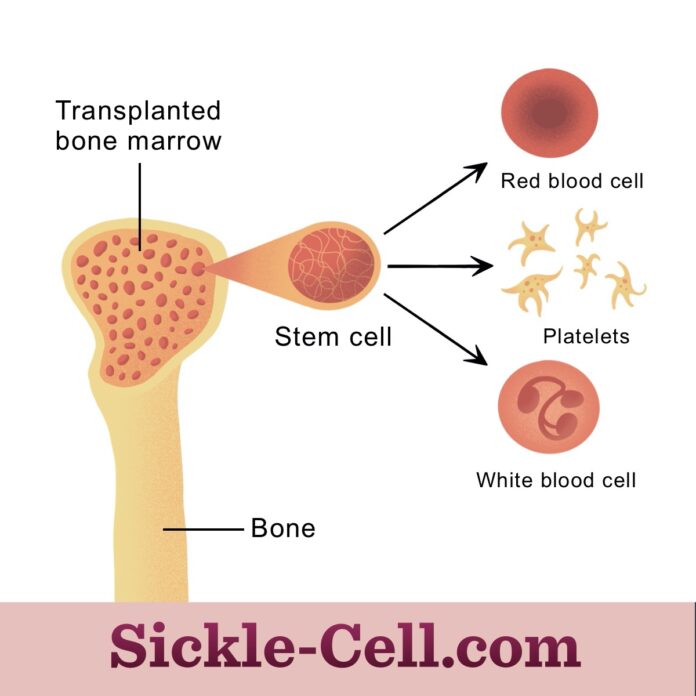The Sickle Cell Foundation of Nigeria (SCFN) announced its first successful Bone Marrow Transplant (BMT) for sickle cell disease on Tuesday, marking a significant breakthrough in the country’s healthcare landscape. Chief Tunde Afolabi, the foundation’s chairman, revealed the news during a media briefing, highlighting the collaborative effort with the Lagos University Teaching Hospital (LUTH) to establish a state-of-the-art BMT Centre in Lagos.
Sickle cell disease (SCD) is an inherited blood disorder that alters the shape of red blood cells, transforming them from their normal disc shape into a crescent or sickle shape. This change makes the cells sticky, leading to blockages in blood vessels that can result in severe pain, infections, and organ damage. BMT is currently the only known cure for SCD, which affects nearly millions of people worldwide.
At the briefing, Afolabi recounted that last month, two patients—one pediatric and one adult—were admitted to the SCFN/LUTH BMT Centre. After weeks of preparation, which included chemotherapy and blood transfusions, stem cells harvested from family donors were infused into the patients. Both have since been discharged and will continue to receive follow-up care.
Afolabi expressed gratitude to the entire LUTH team and acknowledged the contributions of past and present leaders at LUTH, as well as the expertise provided by an international team of consultants. “Strategic partnerships and collaborations gave life to this remarkable achievement,” he noted.
He highlighted the training oversight from Vanderbilt University Medical Centre, where SCFN’s medical staff underwent specialized training in BMT procedures. Additional training was provided for nurses by Sankalp India Foundation and the Worldwide Network for Blood and Marrow Transplantation (WBMT).
The significance of this achievement cannot be understated, as SCD represents a critical public health challenge. Afolabi reported that approximately 70 percent of sickle cell births occur in Sub-Saharan Africa, where inadequate healthcare has resulted in high mortality rates among affected children. In Nigeria alone, around thousands of babies are born annually with SCD, with many dying before the age of five.
“The average life expectancy for individuals with SCD in Nigeria is only 20 years,” Afolabi highlighted. “This highlights the urgent need for access to effective treatments and cures.”
Despite the groundbreaking nature of the recent transplants, Afolabi acknowledged the high cost associated with BMT procedures. Many individuals with SCD live below the poverty line and face significant barriers to accessing care. To address this challenge, SCFN is developing the Access to Care Programme, a digital platform aimed at connecting patients in need of financial support with potential sponsors. Afolabi appealed for partnerships with government bodies, private organizations, and philanthropists to expand this program, stating, “Together, we can make this life-saving cure more accessible for all Nigerians living with sickle cell disorder who qualify for it.”
Prof. Olu Akinyanju, founder of SCFN, was praised for his vision in establishing the BMT Centre. Afolabi also recognized the Lagos State Government for its initial funding support, as well as contributions from the NNPC/Chevron Joint Venture and generous individuals who contributed to the Centre’s development.
Dr. Annette Akinsete, the National Director of SCFN, expressed pride in the establishment of the BMT Centre, which is the first of its kind in West Africa. “We have always believed that Nigerians deserve access to world-class healthcare at home, and this is now a reality,” she said.
Prof. Wasiu Adeyemo, the Chief Medical Director of LUTH, who was represented at the event, highlighted that the partnership with SCFN reflects a shared commitment to improving healthcare outcomes for Nigerians with sickle cell disease.
The success of the first BMT procedures has brought hope to many families affected by SCD. The mother of one of the discharged patients described her experience as remarkable and filled with hope, praising the exceptional care received at the SCFN/LUTH BMT Centre.
In closing, Afolabi reiterated the importance of continued collaboration and support in the fight against sickle cell disease, aiming to turn hope into a tangible reality for many in Nigeria and beyond.

